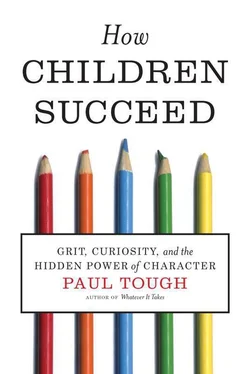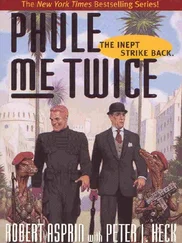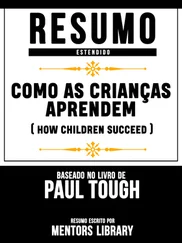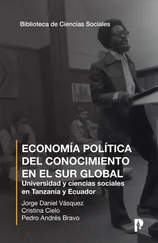The YAP student whose future seemed the most hopeful was also the one whose life story I found the most painful to hear. Keitha Jones was, when I met her in Elizabeth Dozier’s office in the fall of 2010, a seventeen-year-old Fenger High School senior. She had a hard look about her—tattoos up and down her arms, a metal stud through her lower lip, and an angry streak of red dye down the front of her choppy haircut. She lived in her mother’s house on Parnell Avenue at 113th Street, a couple of blocks south of Fenger in a section of Roseland known as the Hundreds. The house, a small, worn bungalow, was, when Keitha was growing up, invariably loud and crowded and full of conflict, populated by a rotating crew of lodgers: siblings, half siblings, uncles, cousins. On rare occasions, the cast would include Keitha’s father, who was, as she described him, a “player,” a local mechanic with a wife and family living a few blocks away, girlfriends (including Keitha’s mom) scattered all over the neighborhood, and a total of nineteen kids. Growing up, Keitha would occasionally meet a girl who looked suspiciously like herself, and she’d think: Well, there’s another sister. Keitha’s mother had been a Fenger student back in the eighties until she got kicked out in her senior year for showing up at school drunk. Now she was addicted to crack, Keitha told me, as were many others in her extended family. Some of them dealt cocaine as well, and when Keitha was young, police raided the house on Parnell frequently, looking for drugs or guns, and they knocked over dressers and threw pots and pans around and then usually dragged one relative or another away in handcuffs.
When Keitha was in the sixth grade, she told me, she was sexually molested by a relative, an older man she called Cousin Angelo, also a crack addict, who lived with her family throughout her childhood. “I was real young, and I was scared,” she recalled. “So I was just, like, Whatever you’re going to do, you need to do it and get it over with.” The abuse, which went on for years, ate away at her. She hoped her mother would somehow notice and intervene, but Keitha never actually said anything—she was afraid that if she did tell her mother, her mother wouldn’t believe her, and that would be more than Keitha could bear. So she kept quiet and just got angrier and angrier. She and her mother argued all the time, but they never came to blows; Keitha believed it was wrong to strike an adult. “So that’s why I used to come to school, just to fight,” she told me. “That was the way for me to relieve the stress. I didn’t talk to people about my problems. I just let them build up inside until I was ready to explode. And so when I got to school, as soon as someone said something to me that I didn’t like, I’d take my anger out on them, because I knew I couldn’t hit my mama.” In her freshman year at Fenger, Keitha piled up multiple disciplinary infractions, one ten-day suspension after another, until she had a reputation as one of the most violent kids at a violent school. “That’s how everybody thought of me,” she said. “As a fighter. I used to brag on it.”
In June of 2010, Dozier requested that Keitha be assigned to a YAP advocate. The first advocate Steve Gates paired Keitha with wasn’t the right fit—she was too “old-fashioned,” in Keitha’s opinion. So Gates tried again, assigning Keitha to a part-time advocate named Lanita Reed, a thirty-one-year-old Roseland resident who was mentoring just one other YAP client. Reed had a full-time job running her own beauty salon, a cozy, welcoming place called Gifted Hanz that cheered up an otherwise desolate block of 103rd Street. Keitha had always had in the back of her mind the idea that she wanted to cut hair, so Reed put her to work in the salon as a shampoo girl, washing hair and sweeping up and occasionally helping out with molding or braiding or doing twisties, the short, tight dreads that many of the neighborhood boys wore.
Reed is a spiritual person, a regular churchgoer, but she also believes in the importance of a young lady’s physical appearance, so she undertook with Keitha what amounted to a simultaneous inner and outer makeover. When you meet her, Keitha does not seem like the manicure type, but Reed convinced her to get her nails done and have her hair styled, and she taught her about makeup and false eyelashes and nice clothes. The two of them spent hours at Gifted Hanz or out together in the neighborhood, eating or bowling or just sitting and talking: an extended, ongoing salon-therapy session. Reed, Keitha told me, was like the perfect big sister. She organized Sunday-night dinners at the salon for Keitha and a few other girls enrolled in the YAP program where they could trade stories about neglectful mothers and absent fathers, about boys and drugs and anger. Keitha, who had never talked about anything to anybody, opened up. “My whole outlook on life changed,” Keitha told me.
At Reed’s suggestion, Keitha started praying. “I asked God just to heal me,” she said, “to forgive all the bad things I did.” She stopped arguing with her mother and quit fighting at school. When a couple of sophomore girls started mouthing off to her in the hallways, she kept her cool and asked Reed what to do about it. Reed helped to arrange a sit-down with the girls in Dozier’s office, and much to Keitha’s surprise, they were able to work through their problems. “When we sat down to talk about it,” Keitha told me, “it turned out it was all over nothing.”
And then another distressing development: That fall, Keitha’s youngest sister, who was just six years old, told Keitha that Cousin Angelo had tried to touch her. “When she said that, I just couldn’t stop crying,” Keitha told me. “I felt so guilty. Because if I had said something when I was younger, then maybe he would have been gone, and it wouldn’t ever have happened to my sister.” Keitha told Reed, and Reed told Gates, and Gates told Reed that she was obligated to inform the Illinois Department of Child and Family Services, or DCFS; like almost all social workers and teachers, YAP advocates were mandated reporters, meaning they were legally required to report physical or sexual abuse to the proper authorities. Reed was beside herself. In Roseland, DCFS were the bad guys: they were the people who took your kids away. And troubled though Keitha’s home was, Reed believed that Keitha and her siblings belonged with their mother, not in foster care.
Reed told Gates she didn’t want to make the report. She threatened to quit. She didn’t know what to do. “The street in me wanted to go get somebody and just beat Angelo up,” Reed told me. “But the God in me said you have to deal with this situation the best you can.” Reed finally let Gates place the call. She managed to negotiate with the social workers from DCFS, and in the end Angelo was removed from the home—he ended up in jail, charged with sexual assault on a minor—and Keitha and her siblings stayed with their mother.
As Keitha had feared, her mother wasn’t very supportive about Keitha’s decision to speak out about Angelo. She complained about losing the three hundred dollars a month that Angelo had been contributing to the rent, and she sometimes seemed to Keitha to be more concerned about how Angelo would survive in prison than about the daughters he molested. But Keitha had resolved to change her life, and the incident with Angelo made her all the more determined. “I’m not going to let my past affect my future,” she told me. “I’m going to think about it every now and then, but I’m not going to let it take a toll. The worst has already been done. I’m looking for the positive now. I’m so tired of living the way I’m living that I’m going to do everything in my power to change things.”
Читать дальше



![Коринн МакКей - How to Succeed as a Freelance Translator [calibre 3.46.0]](/books/402693/korinn-makkej-how-to-succeed-as-a-freelance-transl-thumb.webp)








